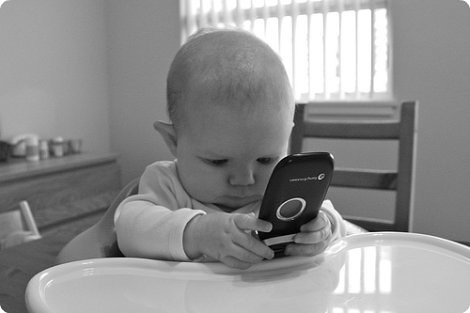TWO-AND-A-HALF-YEAR-OLD Daniel enters my waiting room. His parents sit anxiously, watching his every move with worry and concern on their faces. Daniel flits around the area, going from one thing to the next before finally settling on a book, “The Diary of a Wimpy Kid” – not the usual book selection for most kids his age, with lots of words and very few pictures. Daniel is non-verbal, does not respond to his name, emits a few repetitive sounds and appears to be hearing impaired. He makes poor eye contact and does not point. He runs all over the place but does not walk. It’s difficult to keep him engaged. I go through a list of questions on my patient questionnaire with Daniel’s parents, including a new addition: “About how much total screen time did your child have per day between the ages of 0 to 18 months?” The answer: “More than four hours per day.”
When you think that infants spend most of their daily hours asleep, more than four hours a day accounts for a good deal of their awake time. The parents then told me that this was the only way they could get Daniel to eat, remain calm or get dressed. With a screen in front of his face, he became sedated, zoned out and would tolerate almost anything. In France, some doctors are referring to the behaviors resulting from overexposure to digital devices as “virtual autism.” The good news is many of these behavioral symptoms improve as we eliminate or at least minimize screen time exposure.
Now imagine how excessive screen time might be especially dangerous for the developing brains of babies and young children, like Daniel. According to an article by pediatrician Dr. David L. Hill, “Video entertainment is like mental junk food for babies and toddlers.” Surveys report that 92.2 percent of 1-year-olds have used a mobile device, some starting as young as 4 months. Many parents think they’re providing their infants with a digital head start in life. Instead, they’re stymying their cognitive development. Developing brains simply cannot make sense of the symbols on these devices until at least 18 months of age.
While infants may stare at the bright, moving colors on a screen, there is strong evidence that regular use of screen viewing before 18 months (defined as more than two hours a day) has lasting negative effects on children’s language development, reading skills and short-term memory. Even having the TV on in the background can delay language development, as studies show parents generally speak fewer words per hour to their toddlers than when the TV is off. Other research indicates early screen time exposure may later contribute to problems with obesity, sleep, self-regulation, socialization, executive function and attention.
[Read: How Electronics Could Be Affecting Your Child’s Health.]
According to the 2016 policy statement by the American Academy of Pediatrics, children under the age of 2 need hands-on exploration and social interaction to develop motor, social-emotional, language and cognitive skills. That means getting back to the basics and playing on the floor, being face-to-face with kids, laughing, tumbling, pretending and sharing. These types of interactions activate the child’s right brain, their social brain, which begins to develop before the left brain. Children first learn to understand facial expressions and voice intonation. The left brain kicks off more after the first year of life, as babies begin to develop higher level discrimination and speech-language skills. Once a baby is at least 18 months of age, parents can begin to introduce limited digital media to them, but experts encourage parents to join in with their children at these times and engage with them. That doesn’t mean your toddlers should never watch TV alone. What the policy statement is suggesting is we should use “electronic babysitters” sparingly and be selective about what we let our kids watch and for how long. Parents should also be sure that care givers and daycare centers are aware of the negative effects of screen time on infants and toddlers and limit their exposure.
With so many things in the world that are beyond our control, there are still some things we can control to promote healthy brain development in our babies. A digital diet of “no screen time” may seem outrageous, but before the age of 18 months, it is essential. From 18 months to 5 years of age, cap electronic use to one hour per day while eliminating screens at dinner time and bedtime for all family members, allowing the family to re-connect. Avoid placing electronic devices in your children’s bedroom, where they might be tempted to turn them on while others are sleeping. Plan TV time or use of electronic media together that’s child-friendly. The conversation during and after often includes teachable moments.
[Read: How to Customize a Healthier Approach to Screen Use for Your Family.]
Most of all, be a good role model. Children are watching and imitating parental behaviors from a very young age. Set your cell phone or tablet down, and try to remain emotionally present and connected with your child as often as possible.
Their brains will thank you.
Dr. Leah Light, Contributor
Dr. Leah Light is founder and director of Brainchild Institute in Hollywood, Florida.

